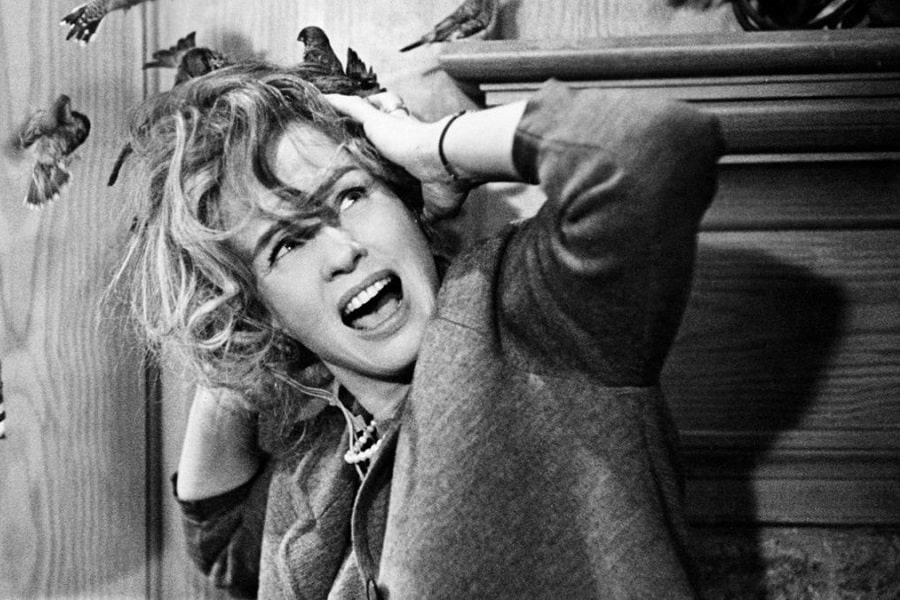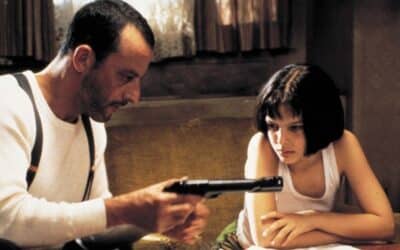
Feature
Why Read Thrillers?
Henya Drescher
Thrillers have grown into a leading choice for books and movies. The NYT Bestsellers list frequently has a high percentage of this genre, while a considerable chunk of TV and movie programs is also in the crime and psychological thriller genres.
What explanations for our fixation with thrillers? Why do we read thrillers? Why do we have this thirst to be acquainted with cold-blooded murderers — mothers who kill babies, men who lead duplicitous lives, abused children, who grow up to be emotionless serial killers?
There is a science to why we can’t look away at the sight of destruction. Whether it’s a tragedy we witness on our morning commute or news of violence that floods our social feeds, we feel compelled to stare at the aftermath. Something feeds our need to comprehend what lies behind shattered minds and morally puzzling humans who think nothing of traversing the lines we set ourselves.
Some admit a wariness at being drawn to the genre. With their obsession with knowing all the gruesome details, they wonder if something is amiss with them. However, that is not so. Psychiatrists suggest that far from being criminally inclined, those who read or like to watch crime thrillers on TV are generally people with a high empathetic factor.
Additionally, it’s a way to face our fears without risking immediate harm. It gives us the chance to confront our fears of death, pain, and extinction while still feeling some level of safety. According to Dr. Ira Sacker, Medical Director of The Sacker Center and Clinical Assistant Professor NYU Langone Medical Center, “We as human beings are by nature ‘adrenaline’ junkies. We are also afraid of our mortality. In California, cars slow down to observe the accident — they are called Looky Loos, and in New York – Rubber Neckers. We are often excited more when the cars involved are totaled, and an ambulance is on the premises. It doesn’t mean we hope for serious illness or death. The same goes for psychological thrillers. Our minds seem wired for extremes. Many of us like being scared or shocked from a distance. Inside we often say, ‘glad it’s not me.’”
A Thriller and its Value
Readers relate to the fear and what the characters are going through. But there is more. Thrillers engage the intellect. Authors set the stage for the crime, present the characters and construct the story up to an apex. Then they start strategizing clues which we pick up as we move along the story. The psychological thriller often uses misdirection to create those spectacular twists that make readers gasp. We all enjoy playing detectives, and as the story advances, we attempt to guess by picking up on clues.
Psychological thrillers are exciting because they’re designed to trick us. First, they establish a scenario; then, they invite us to search for hidden meanings. They provide a mental workout when tension-filled stories make our heart race faster and our neck muscles tighten — we are expelling stress. Maybe, just maybe, reading thrillers with a strong message help remind us how important it is that we sometimes put aside our interests to improve others. It motivates us to soar to the best within us, overcome our fear, and arise to the protection of our most treasured principles.
advertisement
The difference between psychological thrillers and psychological suspense
The terms “psychological thrillers” and “psychological suspense” are often used in place of each other because both deal with characters’ mental states. Psychological thrillers and suspense are subgenres of the primary thriller genre. The chief difference between the two is that a psychological suspense novel generally involves murder and its consequences. Still, they have characteristics that differentiate them from other types of thrillers, such as spy thrillers, medical thrillers, and supernatural thrillers.
In a psychological thriller, characters rarely rely on their physical strength to overcome their enemies but rather on their mental resources. Often the enemies are not external but internal (phobias, insanity, fears). The conflicts are played out through mind games, deception, and manipulation, or even sustained efforts to bulldoze each other’s mental equilibrium instead of the typical physical action in classic thrillers.
Readers want happy conclusions, but the characters need to earn them. Psychological thrillers aim to make the audience suffer as much as possible, but it also endorses a value that we, as human beings, need to have reasserted. To make this work, writers create sympathetic characters with whom readers can identify and then put them through hell. Alfred Hitchcock knew all that very well. He knew how to move us out of our comfort zones. In The Birds, we feel the unyielding horror experienced by a young socialite. But it’s also a political allegory about the psychological viciousness of capitalism and the fear of nuclear attack during the Cold War.
Thrillers benefit us as a culture — the critical values, as humans, hold dear — life, liberty, and justice. It is a way of using the characters’ mental resources to battle injustice and given a chance to examine their values. The lessons are subtle but poignant. We learn that it’s not who we are beneath. It’s what we do that characterizes us, and that transformation can become part of a more significant cause.
To sum it up, nothing is more exhilarating than the human mind. A great thriller grabs you by the throat, thrusts you along, and doesn’t let go until the story ends. And sometimes, not even then.
About the Author
Henya Drescher is often found reading a book, and that book will most likely be a psychological thriller, which she writes. Her stories have appeared in several magazines, and she is an active contributor to Medium.com. Henya’s passions include lifting weights, cultivating her large garden, and driving long distances. She and her husband reside in New York City.

More Thriller Features
Political Thriller Protagonists
What are the qualities of a good protagonist in a political thriller?
Political Thrillers for Independence Day
4th of July Political Thrillers
Death for Hire
The Drama and Intrigue of Hitmen in Thrillers
Advertisement



